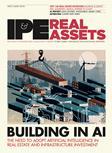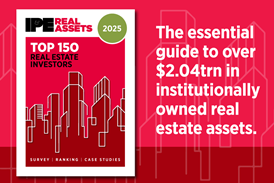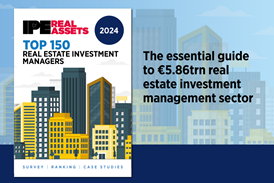Growing investment in alternative real estate assets is pushing investors to change their investment approaches, according to a panel of investors at this year’s in Munich.
Long-term trends such as population ageing and technology are driving investors towards alternative sectors such as healthcare and student housing.
Isabelle Scemama, CEO of Investment Managers–Real Assets, said: “All alternative asset classes require investors to partner with good operators.
“In order to get access to alternative assets, managers need to shift from being a pure premises manager to a private equity real estate manager that is capable of understanding and integrating operating models. The best performers will be those that are capable of becoming partners with the best operators.”
Georg Allendorf, head of European real estate at , added: “When we started to invest in healthcare, we felt we needed additional input around how to run the investment, to protect ourselves from the risk that a nursing operator that has a 25-year lease runs into difficulties.
“We decided to take on a consultant that also took the role as a backup operator. The consultant still does semi-annual audits of the operator to monitor risk.
“Going into these types of sectors, where you are more dependant on the operating side of the business, you need to have a different approach.”
Lisa Lafave, senior portfolio manager for real estate at the Healthcare of Ontario Pension Plan (HOOPP), said: “That is partly why our domestic investment in senior housing, made 10 years ago, did not end well. We did not have the same approach.
“But it was a learning experience. We now focus on the main asset classes, including as office, retail and residential. But we are investing domestically in student housing and exploring access to different investments given the competitiveness of the environment.”
Jukka Reijonen, head of real assets at Etera, a Finnish pension insurance company, said: “Alternatives in general used to be a niche part of our portfolio until not long ago, but it is now 28% of our organisation’s total assets, and real estate is the largest portion.
“While we do not invest in special property, we invest quite heavily in social and affordable housing and that is going to continue.”
Hans Wilhelm Korfmacher, CEO of WPV, a €3.4bn German pension fund for accounting professionals, said that the fund’s real estate allocation has grown significantly over the years and now stands at 20%.
“We are looking to increase the allocation,” he said. “But it is difficult now, as the opportunities outside Germany for a fund of our size are limited.
“We have to carefully choose the opportunities based on our internal resources.”
Alex Limb, head of global investment at Capstone Asset Management, said that the organisation’s strategy tends to focus on traditional asset classes.
“We favour long-term leases in office, retail and logistics.
“Last year we invested in a US retail portfolio, which was attractive from a diversification potential due to its location. However, we have been monitoring the technology sector in Korea, particularly data centres.”
A straw poll of delegates indicated that the main drivers of investment in real estate alternatives were diversification and higher returns.
But Allendorf said: “These investment come with a higher risk-adjusted return profile. Investors need to be mindful of that higher risk component.”
Panellists broadly agreed on the growing importance of environmental, social and governance (ESG) criteria in real estate investment.
Lafave said: “We are in the second five-year cycle of setting our in-house ESG targets. We find that when our managers are asked to comply with ESG criteria, it raises the quality of the management and delivers better performance overall.
“I believe there is a direct correlation between sustainability and investment returns.”
Korfmacher said: “ESG is risk management at its best. It is about doing the things that will protect you from the risk that in 10 years’ time tenants will not want to move into your buildings.”
Limb said: “We also find that applying ESG criteria to our investments is positive in terms of overall management and value. Our clients are increasingly focused on these aspects.”











